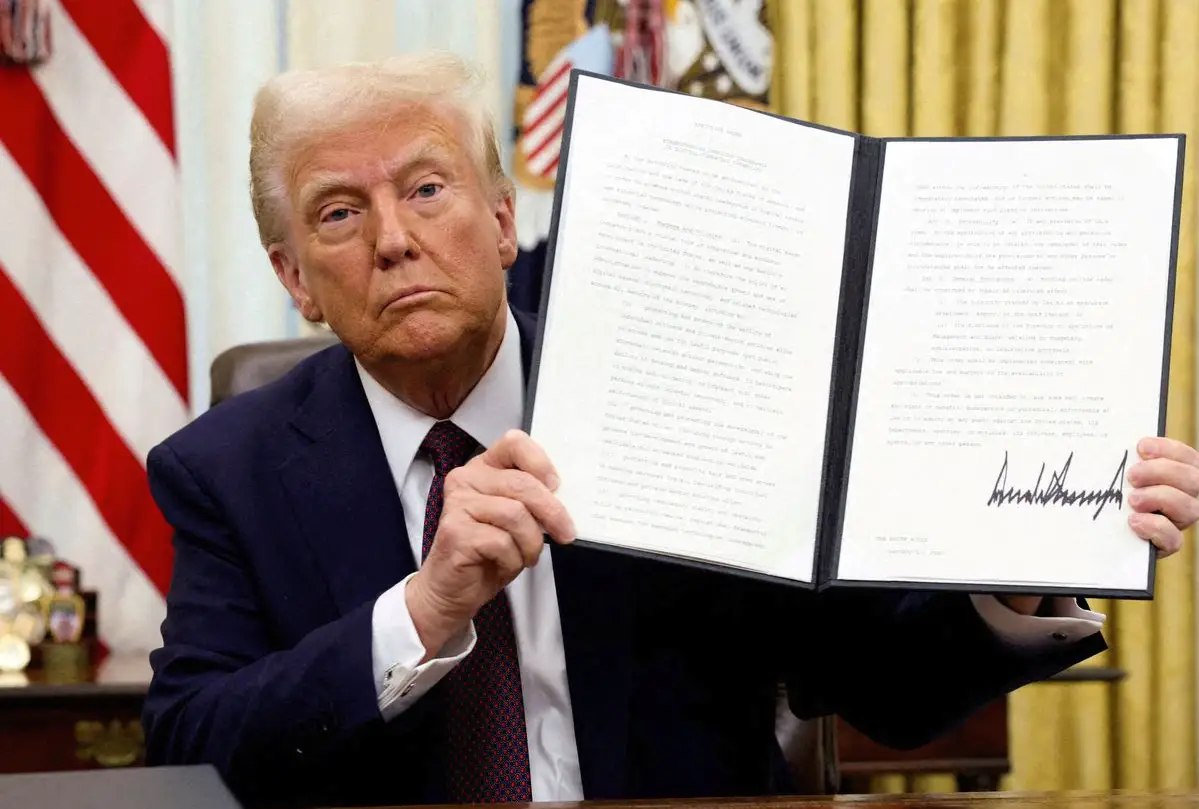The administration of Donald Trump decreed the end of the multilateral economic order. It did so in practice by adopting arbitrary and discriminatory trade restrictions urbi et orbi. With this tactic, it has managed to reach precarious agreements with various countries while continuing to spread extortionist messages.
Jamieson Greer, serving as U.S. Trade Representative, defended in a note published by the New York Times on August 7 the U.S. government’s claim to be the supreme arbiter of international economic relations, using expressions such as the following: “Instead of the prolonged dispute settlement process that favors the old guard of trade bureaucrats, the new U.S. approach consists of closely monitoring the implementation of agreements and, if necessary, quickly reimposing a higher tariff for non-compliance…”
Regarding the viability of such a stance, it is worth warning, first, that for systemic reasons U.S. impositions are unlikely to succeed in the medium term. Secondly, developing countries should adopt positions consistent with their structural interests, anticipating a stage—full of difficulties—during which efforts will be made to reconstitute the international economic system on new foundations.
Why is the current economic multilateralism collapsing?
Since the postwar period, as the capitalist system acquired greater density and reach, multilateral disciplines weakened. In those circumstances, the most developed countries imposed the weight of their power through unilateral measures and discriminatory, restrictive agreements.
These were transitional periods that successive GATT multilateral negotiation rounds sought to overcome, readjusting the rules to ensure viability. Such was the case of the Uruguay Round (1986–1993), which instituted the World Trade Organization (WTO). However, despite initial expectations, the diversification of matters negotiated in the multilateral framework is already inoperative.
A defining feature of the current transition is the emergence of information and communication technologies (ICTs), which, by driving unprecedented processes of accumulation, reproduction, and concentration of capital, have empowered transnational corporations. Their relationship with host nation-states is marked by both interdependence and conflict—manifest or latent—depending on the circumstances, with decisive geopolitical implications, since ICTs include systems and devices of dual use (commercial and military).
In this scenario, available multilateral rules fail to limit the aggressive strategies of transnational corporations in the ICT sector. Political authorities therefore claim the power to set unilateral regulations in the name of principles or values such as freedom of expression, protection of personal data, competition defense, and ultimately, national security.
Why is it necessary to reconstitute the multilateral economic order?
The multiplication and acceleration of economic and financial flows through ICTs has deepened imbalances stemming from the United States’ role as the “locomotive” of the international economic system, starting with its substantial indebtedness. This ambivalent role derives from its status as the provider of the world’s most prevalent exchange and reserve currency—i.e., seigniorage.
One of the key figures behind Trump’s international economic policy for his second term has been Stephen Miran, who in November 2024 released a document (A User’s Guide to Restructuring the Global Trading System). He recommended increasing import tariffs by using seigniorage as a deterrent weapon. Miran wrote: “When the reserve country is large compared to the rest of the world, it does not suffer significant externalities due to its reserve status.” Moreover: “…if the reserve asset is the lifeblood of world trade and financial systems, this means that whoever controls the reserve asset and the currency can exercise a certain level of control over trade and financial transactions.”
But to preserve seigniorage, manipulation of trade and financial transactions cannot be infinite. Locked in a geopolitical contest with China to conquer the same markets through trade and investment—relying on both tangible and intangible contributions of ICTs—the United States can only maintain seigniorage if it prevails over its adversary while accepting certain rules.
Thus, both discriminatory and restrictive economic maneuvers and corporate practices of capturing and manipulating markets have limits for all contenders. If they devastate the resources of conquered populations and territories, they will be digging their own graves. Hence the need to reconstitute a multilateral order and clearly demarcate the battlefields.
Accusations against Brazil: a veiled attack on the developing world
Among the most sensitive issues for peripheral countries such as those in Latin America—and which would worsen if multilateral orphanhood persists—are those raised by the “investigation” launched on July 15 this year by the U.S. Trade Representative’s Office (USTR) against Brazil under the draconian Section 301 of the 1974 Trade Act.
Under this regime—violating WTO rules, as the Brazilian government promptly noted—unsustainable charges with severe consequences have been made in the absence of an adequate multilateral umbrella. These include the disregard of economic integration agreements signed by developing countries, as well as of special and differential treatment.
The disregard of integration agreements and special and differential treatment can have severe consequences
The U.S. government claims that preferential tariffs exchanged by Brazil in agreements with third countries—particularly Mexico and India—amount to unfair trade practices, since they involve goods whose production in signatory countries would already meet international competitiveness standards.
All WTO members are multilaterally entitled to enter into economic integration commitments. Furthermore, developing countries achieved a significant recognition at the end of the Tokyo Round: the “enabling clause.” This is their right to agree among themselves on non-extensive trade preferences, i.e., outside the scope of the most-favored-nation principle. This multilateral recognition does not admit vetoes or objections from third countries. Such objections are only legitimate under the Generalized System of Preferences (GSP), which developed countries use to suspend unilateral preferences granted to developing countries for initially non-competitive productions (“graduation clause”).
The attempt to reinstate a kind of graduation clause undermines an acquired right of developing countries. By setting itself up as arbiter of competitive performance in specific sectors, the U.S. disregards the existence of basic disparities and insufficiencies.
Thus, the challenge to commitments made by our countries to sustain the few traditional exports with competitive advantages once again bets on perpetuating these structural shortcomings.
This aberration can only be overcome by reaffirming multilateral disciplines that enshrine the recognition of economic integration and special and differential treatment for the developing world.
*Machine translation, proofread by Ricardo Aceves.














